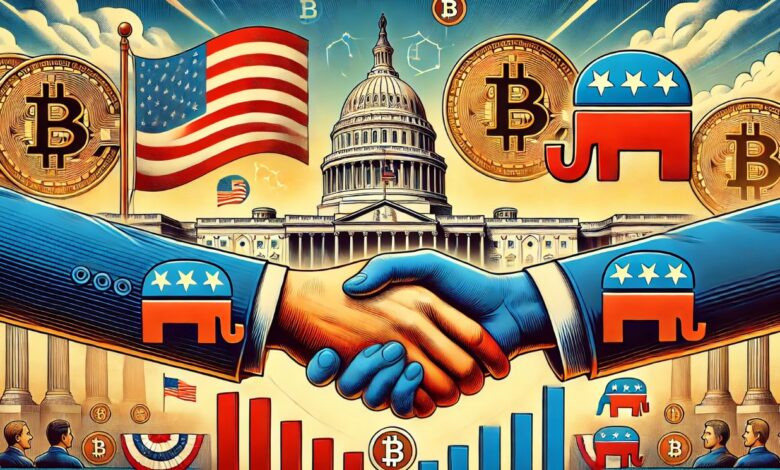
A recent Forbes report highlights a significant bipartisan effort among US lawmakers to establish a strategic Bitcoin (BTC) reserve. This initiative gained traction following Senator Cynthia Lummis’ address at the 2024 Bitcoin Conference in Nashville, where she unveiled legislation aimed at utilizing existing federal funds to purchase one million BTC. This move could position the United States as the largest nation-state holder of the cryptocurrency.
The Role of Bitcoin as a Federal Reserve Asset
On the day Senator Lummis introduced her groundbreaking legislation, former President Donald Trump articulated his vision for a “national Bitcoin stockpile.” He pledged not to sell the approximately 200,000 Bitcoin currently held by the US government, drawing parallels between BTC and the steel industry of the past century. Trump’s ambition is clear: establish the US as the “crypto capital of the planet.”
Adding to the conversation, former presidential candidate Robert F. Kennedy Jr. proposed an even more ambitious strategy to acquire five million BTC, which represents roughly a quarter of the global Bitcoin supply. This growing interest in a strategic Bitcoin reserve is notably gaining traction across party lines. Representative Ro Khanna, a Democrat from California, is a prominent supporter, stressing the importance of recognizing Bitcoin as a reserve asset for the Federal Reserve.
Khanna emphasized, “We want to ensure openness to integrating Bitcoin into the Federal Reserve,” during a recent podcast. He highlighted Bitcoin’s potential for appreciation and its significance in setting new financial standards.
Democratic Advocacy for Digital Assets
The Bitcoin currently held by the US government primarily originates from confiscations related to illicit activities. Traditionally, these assets would be liquidated, but Khanna argues for retaining this BTC as a strategic reserve, allowing the US to capitalize on its long-term value.
Khanna has been instrumental in advocating for a shift in the Democratic National Committee’s perspective on digital assets. In a letter to party leaders, he called for a “crypto reset,” urging the inclusion of pro-digital asset language in the party platform and encouraging collaboration with industry experts.
Dennis Porter, CEO of the non-profit Satoshi Action Fund, suggested that initiatives like a strategic Bitcoin reserve could help Democrats connect with a burgeoning demographic of BTC supporters. As cryptocurrency continues to mature, Porter believes that political partisanship surrounding digital assets will diminish.
Khanna echoed this sentiment, asserting that opposing Bitcoin is akin to rejecting technological progress. “You can’t be against Bitcoin or crypto; it’s just a technology,” he remarked, emphasizing that embracing digital assets could align with broader party objectives, including financial equity and sustainable energy policies.
Senator Lummis, a staunch advocate for Bitcoin’s bipartisan potential, encouraged support for her bill from both Republicans and Democrats. “Although the Republican National Committee and President Trump have shown strong support for Bitcoin, I anticipate my colleagues across the aisle will join us,” she stated, signaling that the 2024 election cycle could be pivotal for cryptocurrency policy.
Current Bitcoin Market Trends
At the time of writing, Bitcoin’s price is trending downward, with BTC trading at $60,333, reflecting a nearly 4% decline over the past seven days. This market snapshot underscores the volatility and dynamic nature of the cryptocurrency market, further fueling discussions on the strategic value of holding Bitcoin as a national reserve.







